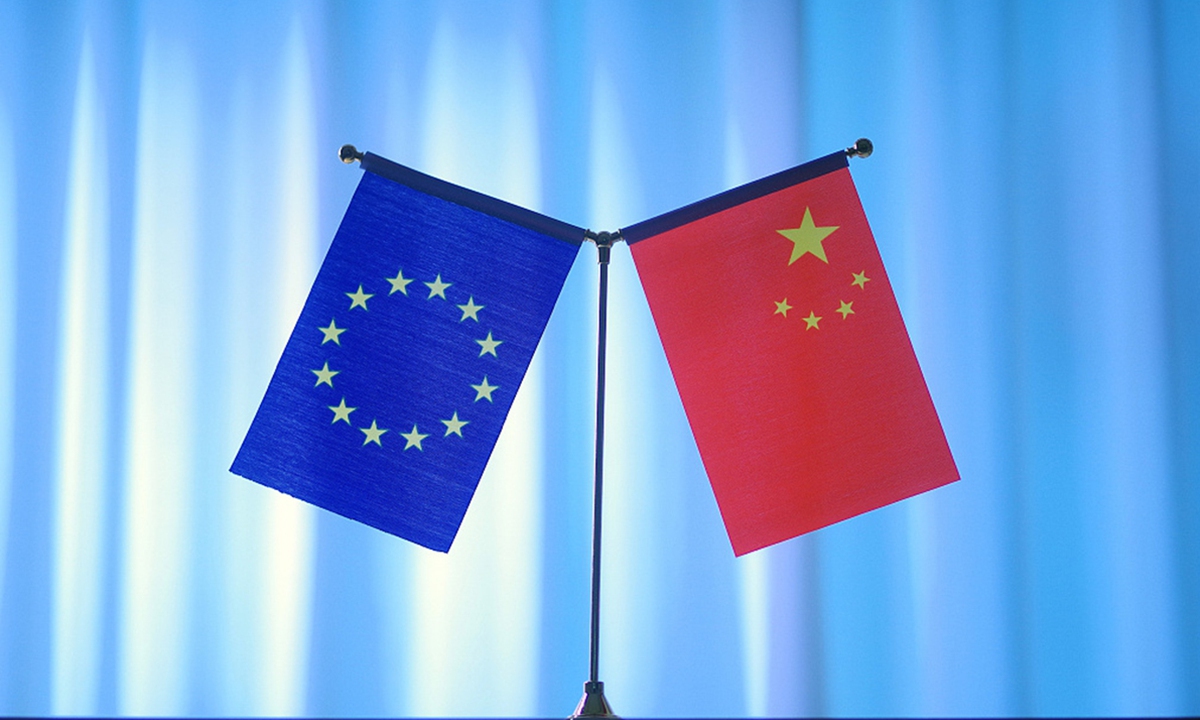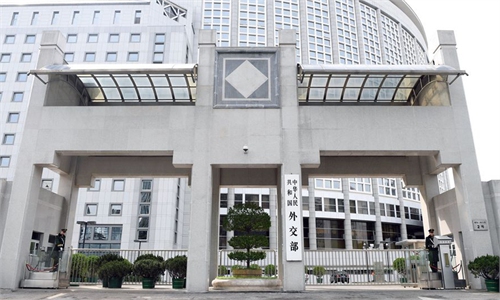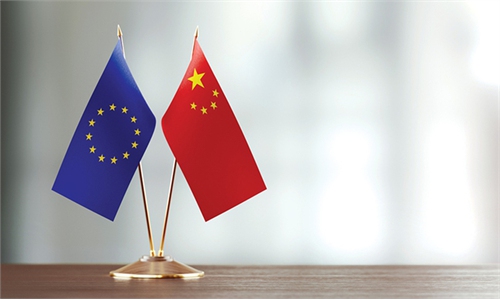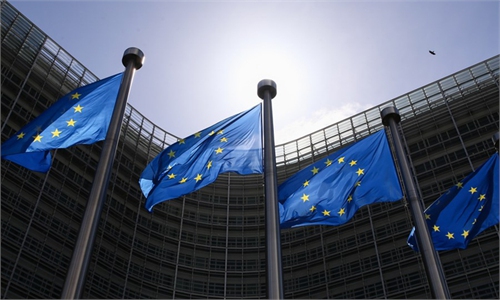
China EU Photo: VCG
The European Commission was set to propose on Wednesday an "anti-coercion" trade measure that is designed to create a pathway to more easily launch economic retaliation against non-EU countries.Given the escalating tensions between China and Lithuania, some Western media outlets have claimed that the draft policy will counter China's "economic coercion" after the tiny Baltic nation allowed Taiwan island to open a representative office in its capital Vilnius.
However, any hype that the EU intends to support Lithuania's anti-China stance doesn't hold water. If the EU sets a bad precedent on Lithuania's challenge to China's sovereignty, then it would be justified for other member states to also require EU support for their foreign policy blunders, which would be suicidal for the economic bloc. In this sense, the draft, which was originally intended to deter the US from recklessly imposing unilateral trade measures on EU members, will not serve as an umbrella for Lithuania in challenging China's national interests.
Now Lithuania has tried to leverage the EU's power in its dispute with China by stressing the importance of "EU unity and solidarity," but it only shows its distorted understanding of what constitutes the EU "unity."
The EU respects the one-China principle, and abiding by the united foreign policy is a cornerstone of the bloc's solidarity. It was Lithuania itself that has undermined the EU's united stance. It should be held accountable for its choice, instead of hiding behind the EU.
It is no secret that Lithuania has been backed by other powers to provoke China's core interests. While the US is trying hard to drive a wedge between China and the EU, the EU needs to be aware that its interests do not lie in confronting China.
It is paramount that the EU maintains its united stance on the Taiwan question, which is based on the one-China principle. With some anti-China forces playing up the "anti-coercion" draft, which is far from becoming law, in an attempt to sow discord in bilateral relations, the EU should be wary of malicious attempts to crowbar political factors into economic and trade relations. It is extremely dangerous if the EU turns a blind eye or offer implicit support to any member that wants to develop diplomatic relations with the island of Taiwan.
Of course, the EU is unlikely to really start a fight with China over Lithuania's wrongdoing, which is clearly an irrational and unnecessary issue on which to pin the direction of the China-EU relationship. It is not in the EU's economic interests to derail China-EU economic and trade cooperation.
China has played a key role in global supply chains, with business partners all over the world. While some anti-China politicians and forces may use ideological issues to attack China, they can hardly affect China-EU economic cooperation.
Even if the pandemic has hit the world economy hard, all the reasons that prompted the EU to continue its cooperation with China remain intact. In fact, the pandemic has only made both sides need each other more than ever.

China EU Photo: VCG
The European Commission was set to propose on Wednesday an "anti-coercion" trade measure that is designed to create a pathway to more easily launch economic retaliation against non-EU countries.Given the escalating tensions between China and Lithuania, some Western media outlets have claimed that the draft policy will counter China's "economic coercion" after the tiny Baltic nation allowed Taiwan island to open a representative office in its capital Vilnius.
However, any hype that the EU intends to support Lithuania's anti-China stance doesn't hold water. If the EU sets a bad precedent on Lithuania's challenge to China's sovereignty, then it would be justified for other member states to also require EU support for their foreign policy blunders, which would be suicidal for the economic bloc. In this sense, the draft, which was originally intended to deter the US from recklessly imposing unilateral trade measures on EU members, will not serve as an umbrella for Lithuania in challenging China's national interests.
Now Lithuania has tried to leverage the EU's power in its dispute with China by stressing the importance of "EU unity and solidarity," but it only shows its distorted understanding of what constitutes the EU "unity."
The EU respects the one-China principle, and abiding by the united foreign policy is a cornerstone of the bloc's solidarity. It was Lithuania itself that has undermined the EU's united stance. It should be held accountable for its choice, instead of hiding behind the EU.
It is no secret that Lithuania has been backed by other powers to provoke China's core interests. While the US is trying hard to drive a wedge between China and the EU, the EU needs to be aware that its interests do not lie in confronting China.
It is paramount that the EU maintains its united stance on the Taiwan question, which is based on the one-China principle. With some anti-China forces playing up the "anti-coercion" draft, which is far from becoming law, in an attempt to sow discord in bilateral relations, the EU should be wary of malicious attempts to crowbar political factors into economic and trade relations. It is extremely dangerous if the EU turns a blind eye or offer implicit support to any member that wants to develop diplomatic relations with the island of Taiwan.
Of course, the EU is unlikely to really start a fight with China over Lithuania's wrongdoing, which is clearly an irrational and unnecessary issue on which to pin the direction of the China-EU relationship. It is not in the EU's economic interests to derail China-EU economic and trade cooperation.
China has played a key role in global supply chains, with business partners all over the world. While some anti-China politicians and forces may use ideological issues to attack China, they can hardly affect China-EU economic cooperation.
Even if the pandemic has hit the world economy hard, all the reasons that prompted the EU to continue its cooperation with China remain intact. In fact, the pandemic has only made both sides need each other more than ever.



